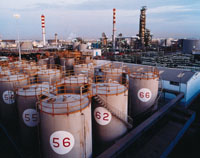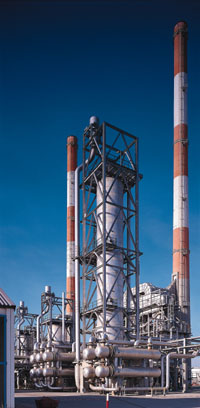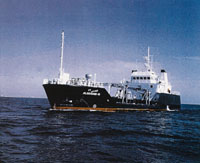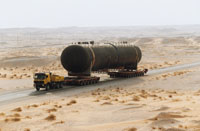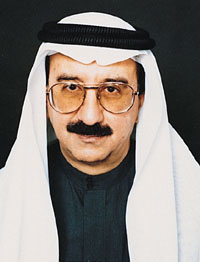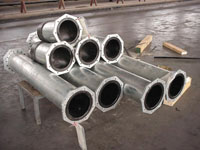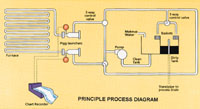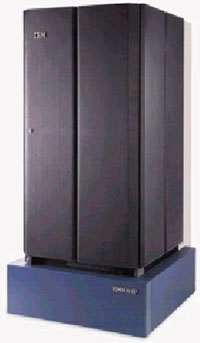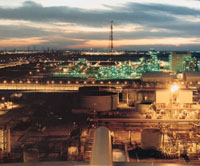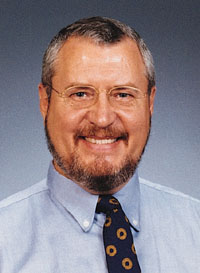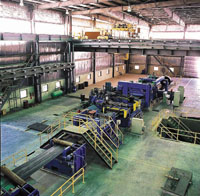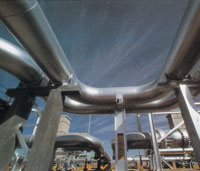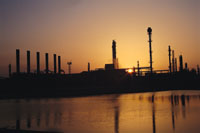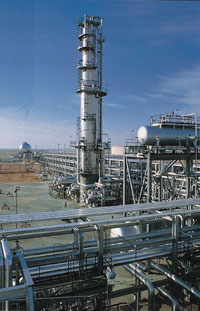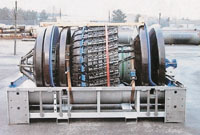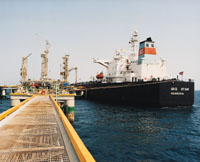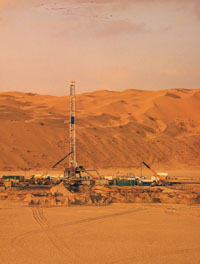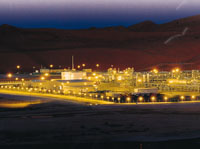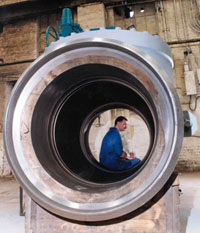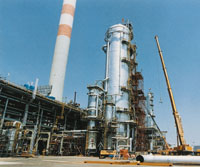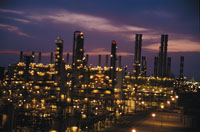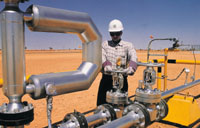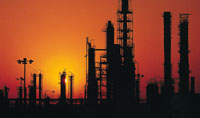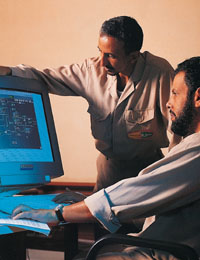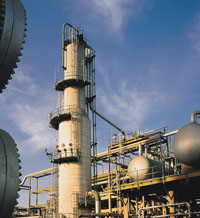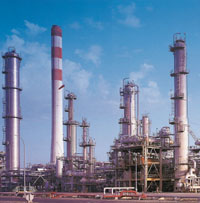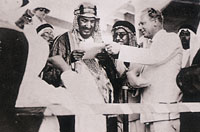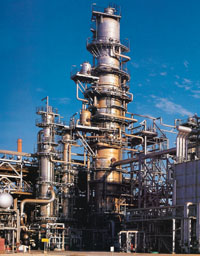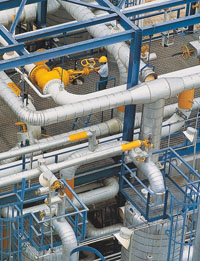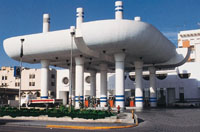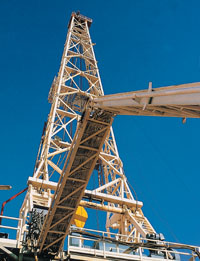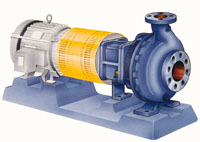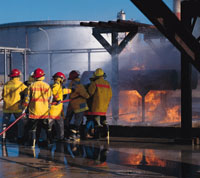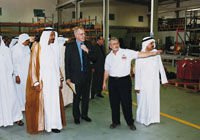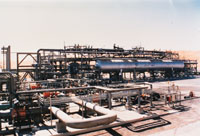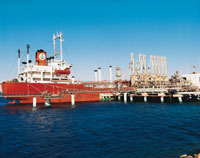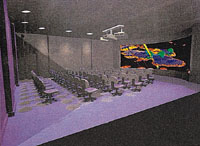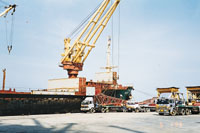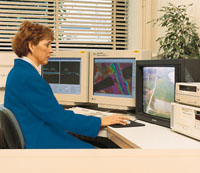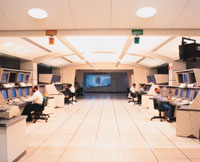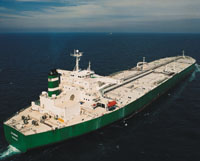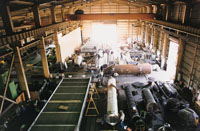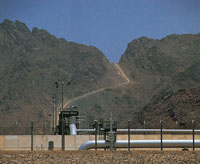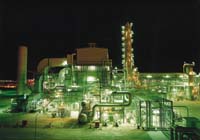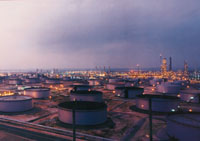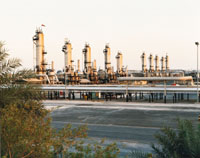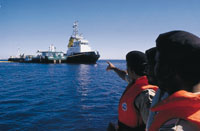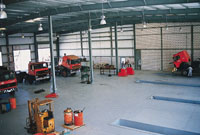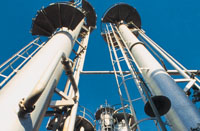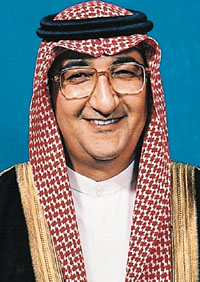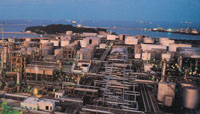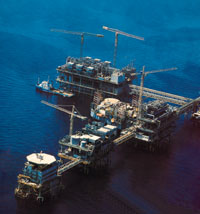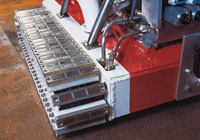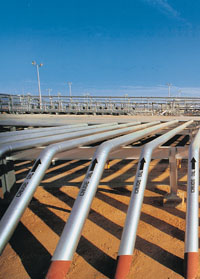
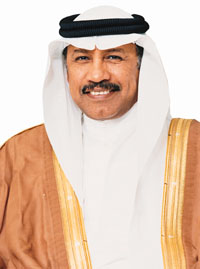
Saudi Aramco president and CEO Abdallah S Jum'ah looks back on recent developments for the company as it moves confidently into the new Millennium, and discusses his views on plans for the future. The final year of the 20th century was in many ways a springboard to the future for Saudi Aramco.
The company took major steps to ensure that the future energy needs of consumers in Saudi Arabia and throughout the world will be met, while maximising the revenues that the company generates for the Kingdom.
At the same time the company has continued to enhance its longstanding reputation for safe and environmentally-friendly operations.
To meet growing energy demand both at home and abroad, Saudi Aramco inaugurated four major installations last year - the Shaybah oilfield, Ras Tanura refinery upgrade, the Dhahran-Riyadh-Qasim multi-product pipeline and the Luberef II refinery in Yanbu - and continued to discover and develop oil and gas resources which will be needed by consumers in the years and decades ahead.
It also worked closely with government agencies and private sector partners to ensure that the fuel and feedstock needed by the Kingdom's expanding economy will be met well into this century.
Saudi Aramco has diligently pursued its commercial objectives in a rapidly changing world market, increasing the profitability of one of the Kingdom's most precious natural resources, petroleum.
As global oil prices recovered from a difficult 1998, Saudi Aramco has not only preserved its market share in key areas of focus, but has also attracted new global customers with its reliability of supply, high level of performance and commitment to providing top-flight service.
The company has strengthened its position as the world's leading supplier of crude oil and natural gas liquids (NGL), and has also enhanced its role as a major player in the refined products market.
The commitment and dedication of its employees, spirit of innovation and use of advanced technology, and its eagerness to meet future challenges have all enabled Saudi Aramco to consolidate its standing as one of the world's foremost petroleum companies.
At the same time, Saudi Aramco has paid close attention to the ways in which it impacts the lives, communities and businesses of people in Saudi Arabia and abroad.
The company has always taken seriously its role as a corporate citizen and a steward of resources. The prosperity of the people it serves and the protection of the natural environment wherever Saudi Aramco operates have long been of paramount concern to the company.
Saudi Arabia will depend on natural gas, as fuel and feedstock, to spur much of its industrial growth in the decade ahead.
The Kingdom is already one of the largest per-capita natural gas users in the world, and its demand for gas continues to grow as its industrial base expands. Saudi Aramco is well placed to provide this critical energy resource.
To meet anticipated demand, exploration for nonassociated gas is proceeding at a rapid pace, and new facilities are being added to the Kingdom's Master Gas System (MGS).
To ensure that nonassociated gas capacity and reserves are sufficient to cope with long-term demand, Saudi Aramco has expanded a number of ambitious programmes.
The company imparted additional momentum to an already intense exploratory drilling effort, as well as to development drilling.
Ju'aymah Gas Plant - chief feedstock supplier for several manufacturing plants in Jubail Industrial City - completed two expansion projects.
The plant marked completion of its Fractionation Capacity Increase project, adding a third fractionation module. A new depentaniser facility was completed at Ju'aymah to supply hexane feedstock to the Saudi Chevron Petrochemical (SCP) Jubail aromatics plant. The installation - funded, designed and built by SCP -will be operated and maintained by Ju'aymah Gas Plant.
Construction has continued on new processing facilities for the 'Uthmaniyah and Berri gas plants, which along with Shedgum provide sales gas for the MGS.
The 'Uthmaniyah Gas Plant additions will boost sales gas capacity by 480 million cu ft per day to about 1.6 billion cu ft per day.
At Berri, new facilities will boost sales gas production capacity by 120 million cu ft per day to about 870 million cu ft per day. Gas debottlenecking activities have also been in progress at Shedgum Gas Plant.
Construction of the Hawiyah Gas Plant, which will serve the gas needs of the Central Region of the Kingdom, began during last year.
This new facility, on schedule for completion late next year, will boost MGS sales gas supply capacity by some 1.4 billion cu ft per day to a total of 5.5 billion cu ft per day.
Providing sales gas as the primary fuel for Saudi power plants and other industries will make additional liquid hydrocarbon products available for export, generating additional revenue for the Kingdom.
In pursuit of this goal, the company has worked to expand, extend and improve the reliability of the Kingdom's sales gas transmission systems.
The extension of the MGS to the Riyadh area will mean that sales gas can eventually replace Arabian Light crude as the fuel for the Saudi Electricity Company's three largest power plants in Riyadh and its environs.



















































































